05 Feb2021
By Jacqueline Rodriguez

Educator preparation programs have experienced a tumult of change in the last 12 months. Many of our members have experienced decreased enrollment in initial licensure teacher education programs, all during a nationwide teacher shortage. Now, more than ever before, it is our responsibility to consider what may be creating barriers for candidates to enter our programs and our profession. AACTE plans to support member institutions’ examination of assessments used for entry into preparation programs and the barriers they create for potential candidates, especially candidates of color.
05 Feb2021
By Linda Minor
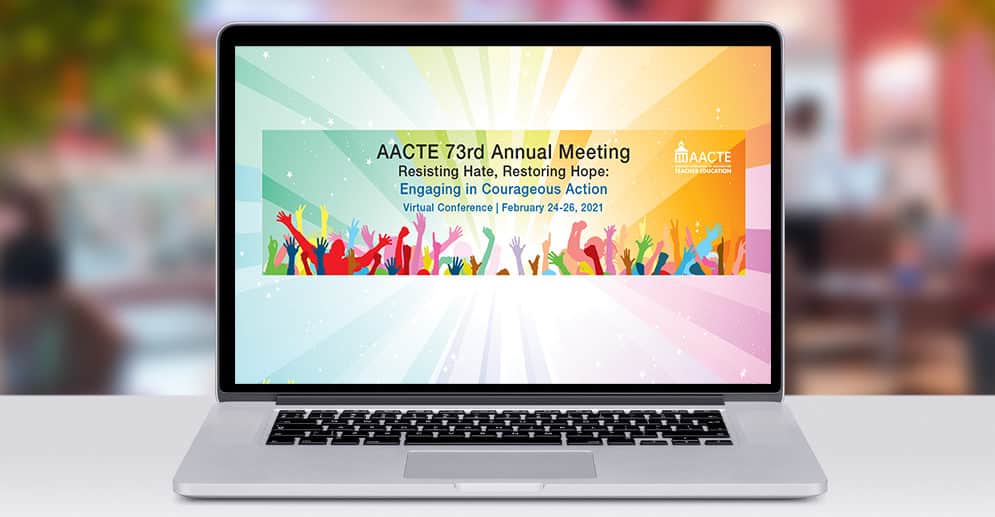
As AACTE’s hosts its first virtual Annual Meeting, we talked with our AV production company, Manor Hill Productions, to share information on what the attendees can expect during the meeting.
Many associations have transitioned their conference to a virtual setting due to COVID-19. What are important aspects for a successful virtual conference/platform to ensure attendees have a valuable experience?
To get the most out of their virtual experience, we encourage you to explore the platform and familiarize yourself with where things are and how to navigate around. Similar to entering a hotel or convention center and finding where the meeting rooms are, the same can be said about a virtual environment. Click around the space and follow the links to understand where everything is located. Visit the exhibit floor, see where the breakouts and main stage sessions will be. Look at the agenda and decide when your desired sessions will be taking place. Everyone wants to network. If you are looking for specific people you can seek them out to chat and catch up. Just because it is a virtual environment does not mean you lose the ability to connect.
04 Feb2021
By Jacqueline Rodriguez
 AACTE is pleased to announce the College of Education and Human Development at the Texas A&M University, as the next home to the Journal of Teacher Education (JTE) editorial team. The editors were selected through a rigorous peer-review process and approved for a 3-year term, beginning in 2021, which can be extended for an additional 3 years.
AACTE is pleased to announce the College of Education and Human Development at the Texas A&M University, as the next home to the Journal of Teacher Education (JTE) editorial team. The editors were selected through a rigorous peer-review process and approved for a 3-year term, beginning in 2021, which can be extended for an additional 3 years.
The current editorial team at Michigan State University, which has served the JTE since 2015, will continue work on the journal through June 2021 to complete Volume 72.
“AACTE celebrates Texas A&M in their selection as the next editorial team for our flagship Journal of Teacher Education. Their team of scholars has the demonstrated experience, respect, and vision to lead the journal into its next chapter,” said Lynn M. Gangone, AACTE president and CEO of AACTE. “JTE is steadily increased its impact on the field under the tenure of the current editorial team at Michigan State University. AACTE owes a debt of gratitude to the tremendous editors at MSU, including incoming Board Chair, Dean Robert Floden, Dr. Gail Richmond, Dr. Dorinda Carter, and Dr. Tonya Bartell.”
04 Feb2021
By Jerrica Thurman
Come experience the reimagined AACTE Annual Meeting – One community. One purpose. One voice.
04 Feb2021
By Elvin Freytes
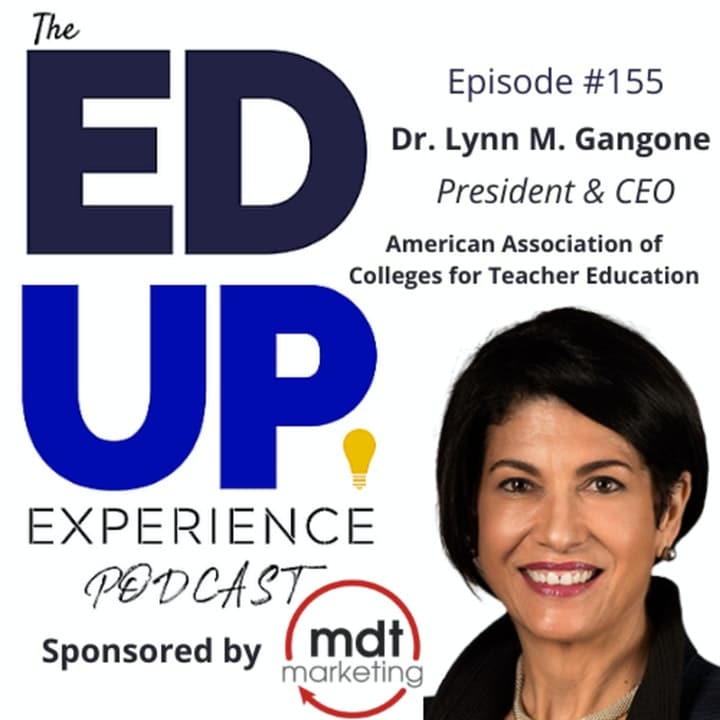 AACTE President and CEO, Lynn M. Gangone is the latest guest on The EdUp Experience podcast with Elizabeth Leiba and Joe Sallustio, EdD. In this episode, Gangone covers the timely topic of the important role teachers play in our society, especially now more than ever.
AACTE President and CEO, Lynn M. Gangone is the latest guest on The EdUp Experience podcast with Elizabeth Leiba and Joe Sallustio, EdD. In this episode, Gangone covers the timely topic of the important role teachers play in our society, especially now more than ever.
02 Feb2021
By Katrina Norfleet

AACTE is excited to introduce AACTE Connect360, an engaging and interactive online community that will link individual educators from its 700 member institutions to bring educator preparation full circle. Attendees at the AACTE 2021 Annual Meeting, February 24-26, will be among the first to preview the latest, members-only resource, designed for members to start discussions, share best practices, and ask and respond to questions of their colleagues on topics that impact educator preparation and the profession.
AACTE is the leading resource for the ed prep community, and with AACTE Connect360 members will facilitate more active discussions and fill a need for program-specific, peer-to-peer support within educator preparation. The digital, collaborative platform will also allow members on the AACTE Board of Directors, on committees, in Topical Action Groups, and in the Holmes Program to stay connected, share files, and store resources within their dedicated communities.
02 Feb2021
By Michael W. Apple

During the virtual AACTE 2021 Annual Meeting, attendees are invited to join their peers at the Learning Lab session, Disrupting Inequities: Local and Global initiatives for Shared Responsibility in Diversity, Equity, and Social Justice on Friday, February 26, 10:00 – 11:00 a.m. AACTE member
Michael W. Apple of the University of Wisconsin addresses this topic in the following thought leadership article.
Schools, particularly public schools, are under a great threat right now. And as education leaders, it’s imperative that we understand the current environment. There is a growing anger towards our educational system that is visible statewide and at a national level. Fueled by restorative politics, many of those who have lost their faith in public schools believe that educators place too much emphasis on equitable education. Yet, while much more needs to be done, the simple fact that some people are criticizing schools must mean that we must be doing something right already. If we weren’t working at interrupting racial injustice many people, especially those who are ultra-rightists, wouldn’t be so angry at schools and teachers.
02 Feb2021
By Jerrica Thurman
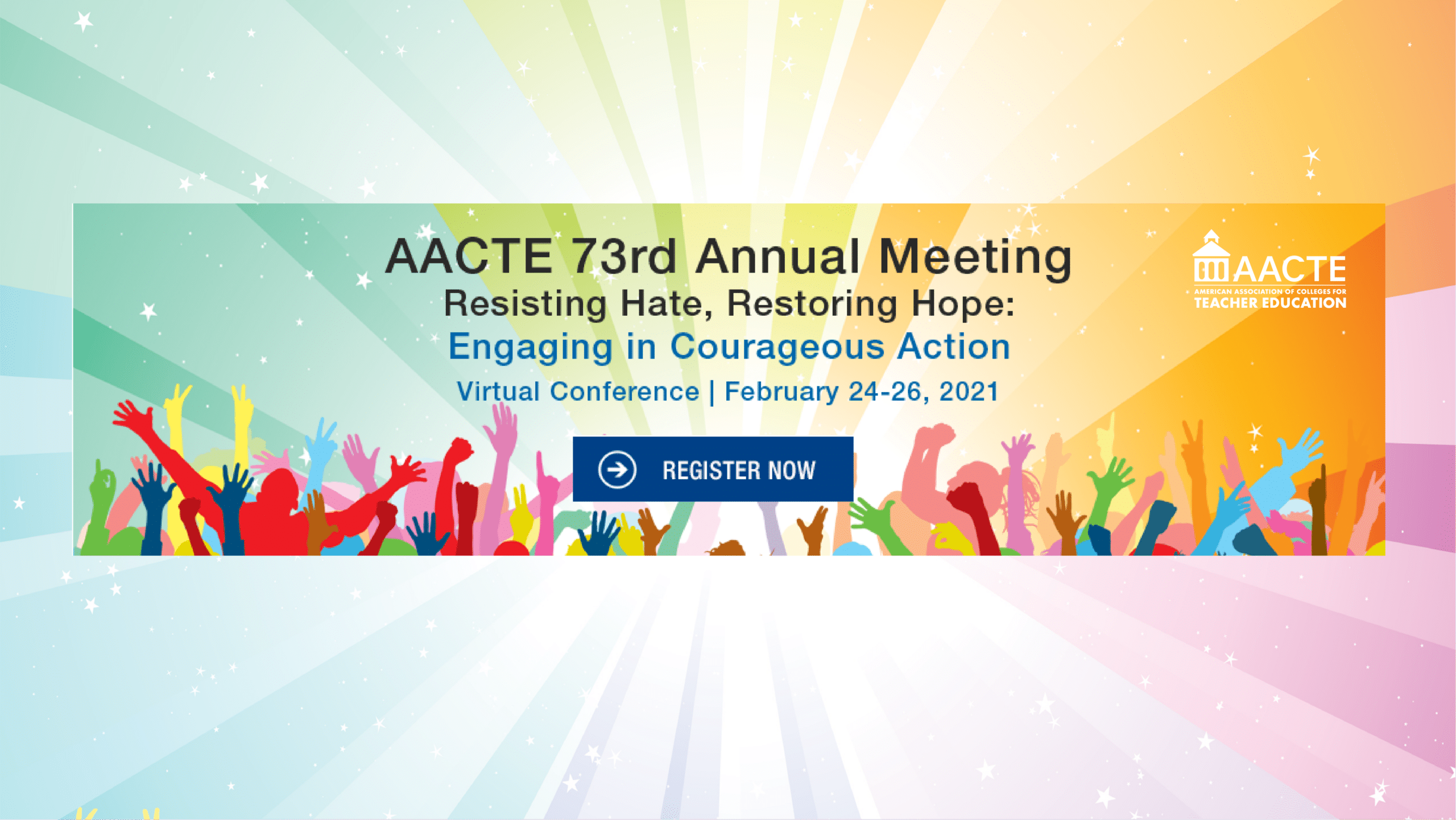 Join your colleagues at the 2021 Annual Meeting for a deep exploration of “Leading During Difficult Times.” AACTE will continue the conversation from its 2020 Leadership Academy in two sessions focused on ways education leaders can navigate the challenges of the current global environment. This second part of the Academy will include guided panel discussions and a close examination of successful case stories.
Join your colleagues at the 2021 Annual Meeting for a deep exploration of “Leading During Difficult Times.” AACTE will continue the conversation from its 2020 Leadership Academy in two sessions focused on ways education leaders can navigate the challenges of the current global environment. This second part of the Academy will include guided panel discussions and a close examination of successful case stories.
The Leadership Academy sessions at this year’s Annual Meeting include
Strategic Planning and Leadership: COVID-19 Edition
Wednesday, February 24
1:30 – 2:30 p.m.
In this session, leaders will engage in strategic planning for the coming months as we approach a post pandemic world. Attendees will assess what has been tried and learned so far during the pandemic, envision the upcoming year, using what has been learned to outlining new initiatives post pandemic. Participants will discuss how to engage faculty and staff, organize their interactions, and process their experience. Participants will leave with an action plan for developing new initiatives.
01 Feb2021
By Carolyn Phenicie
AACTE congratulates the four National Teacher of the Year finalists, all of whom have earned a degree from an AACTE member institution. To view their full profiles, visit the CCSSO website.

The Council of Chief State School Officers (CCSSO) announced that four exemplary educators from across the country are finalists for 2021 National Teacher of the Year:
01 Feb2021
By Megan Reister, Heather K. Olson Beal, Tracy Ensor, Emily Regan Wills, Mary Ellen Cashen and Shelby Gull Laird
In Part 1 of this article, the authors talk about how, as teacher preparation program professors in different areas of the United States, they managed to still provide valuable, worthwhile, and innovative professional development for their preservice educators and graduate students who are in-service teachers, despite the myriad ways in which COVID-19 derailed their spring semester.
 Many years ago, during a class on educational administration in my [Megan Reister] master’s program, a guest speaker shared an inspirational mantra he lived by as principal of a large elementary school. He shared the quote, “Prior planning prevents poor performance!” and then went on to explain how he incorporated intentional planning, thoughtful conversations, and open communication with colleagues and staff at his school to create an atmosphere of intentionality and accountability within and outside the classrooms.
Many years ago, during a class on educational administration in my [Megan Reister] master’s program, a guest speaker shared an inspirational mantra he lived by as principal of a large elementary school. He shared the quote, “Prior planning prevents poor performance!” and then went on to explain how he incorporated intentional planning, thoughtful conversations, and open communication with colleagues and staff at his school to create an atmosphere of intentionality and accountability within and outside the classrooms.
As a professor of special education and early childhood education in Ohio, that expression came to mind more than once as I experienced the tumultuous second half of a semester that no one could have predicted or planned for thanks to COVID-19 in Spring 2020. No one could have prepared for what occurred—schools closing, moving to remote teaching, working full-time from home while also managing children at home full-time without the usual supports. One could hardly be faulted for poor performance no matter how much planning happened on the fly. I could only shake my head as I thought back on that statement about planning and performance that made such an impact in my early years of teaching in early March when the news broke that the university was taking a week to figure out how to move to online teaching for the next month and then again, once plans were changed and it was determined the whole spring semester would be moved to online learning.
01 Feb2021
By Jane E. West
 This blog post is written by AACTE consultant Jane West and is intended to provide updated information. The views expressed in this post do not necessarily reflect the views of AACTE.
This blog post is written by AACTE consultant Jane West and is intended to provide updated information. The views expressed in this post do not necessarily reflect the views of AACTE.
Biden’s Executive Action and Political Appointments
This week, President Biden continued with his executive action blitz—signing a series of orders, actions, and memorandums aimed at rapidly addressing the coronavirus pandemic and dismantling many of the former administration’s policies. Among the orders signed to date are several of keen interest to educators, including the restoration of DACA, the repeal of the Trump order on race and stereotyping, an extension of the pause on student loan collection through September, and an order requiring the Department of Education to issue guidance on school re-openings during the pandemic.
Almost a week after being sworn in, President Biden is seeing his Cabinet start to come together. This week the Senate confirmed Antony Blinken, as Secretary of State, Janet Yellen,as Secretary of the Treasury, Lloyd Austin as Secretary of Defense, and Avril Haines as Director of National Intelligence—all with bipartisan votes. Biden awaits confirmation of numerous key Cabinet nominees to lead important agencies—including Justice, Homeland Security, Health and Human Services and the CIA.
29 Jan2021
By Jerrica Thurman
 AACTE is excited to announce U.S. Senator Elizabeth Warren will address the AACTE community during its 2021 Annual Meeting Opening Keynote session on February 24. New this year, the conference session will feature a series of mini presentations from influential politicians and education leaders making a difference in shaping our post-COVID world.
AACTE is excited to announce U.S. Senator Elizabeth Warren will address the AACTE community during its 2021 Annual Meeting Opening Keynote session on February 24. New this year, the conference session will feature a series of mini presentations from influential politicians and education leaders making a difference in shaping our post-COVID world.
Senator Warren will deliver an important message on paving the way forward for educators during this global pandemic. A former elementary teacher and law professor, Warren works to advance the U.S. educational system in her role on the Senate Committee on Health, Education, Labor and Pensions (HELP). Warren is recognized as one of the nation’s top experts on the financial pressures facing middle class families. Boston Globe has called her “the plainspoken voice of people getting crushed by so many predatory lenders and under regulated banks.”
In the aftermath of the 2008 financial crisis, Warren served as Chair of the Congressional Oversight Panel for the Troubled Asset Relief Program (TARP). Her independent and tireless efforts to protect taxpayers, to hold Wall Street accountable, and to ensure tough oversight of both the Bush and Obama Administrations won praise from both sides of the aisle. Read Senator Warren’s full bio at www.aacte.org.
29 Jan2021
By Kathleen M. DaBoll-Lavoie, Ph.D.
This article originally appeared in University Business and is reprinted with permission.
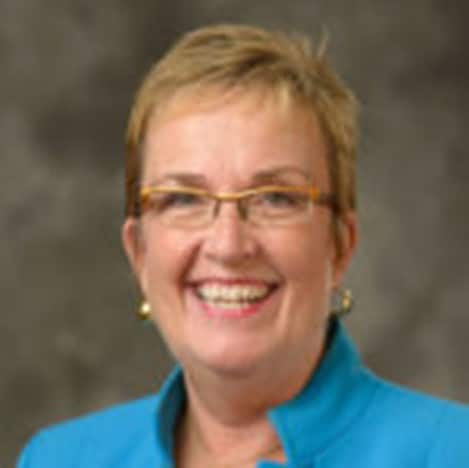 As we enter the new year, many education leaders are questioning the impact of the pandemic on educator preparation programs (EPPs) and the pipeline of new teachers entering classrooms in 2021 and beyond.
As we enter the new year, many education leaders are questioning the impact of the pandemic on educator preparation programs (EPPs) and the pipeline of new teachers entering classrooms in 2021 and beyond.
Will colleges and universities expand and invest in their education programs to meet the demand for new teachers as educators retire due to COVID-19 health concerns? Will they downsize their education programs due to budget cuts resulting from the pandemic? Will they find innovative ways to collaborate with other institutions to sustain their education programs?
While there are many uncertainties, what we do know is that if educational programs are scaled back or terminated, the national teacher shortage will be exacerbated.
29 Jan2021
By Bianca Nightengale-Lee
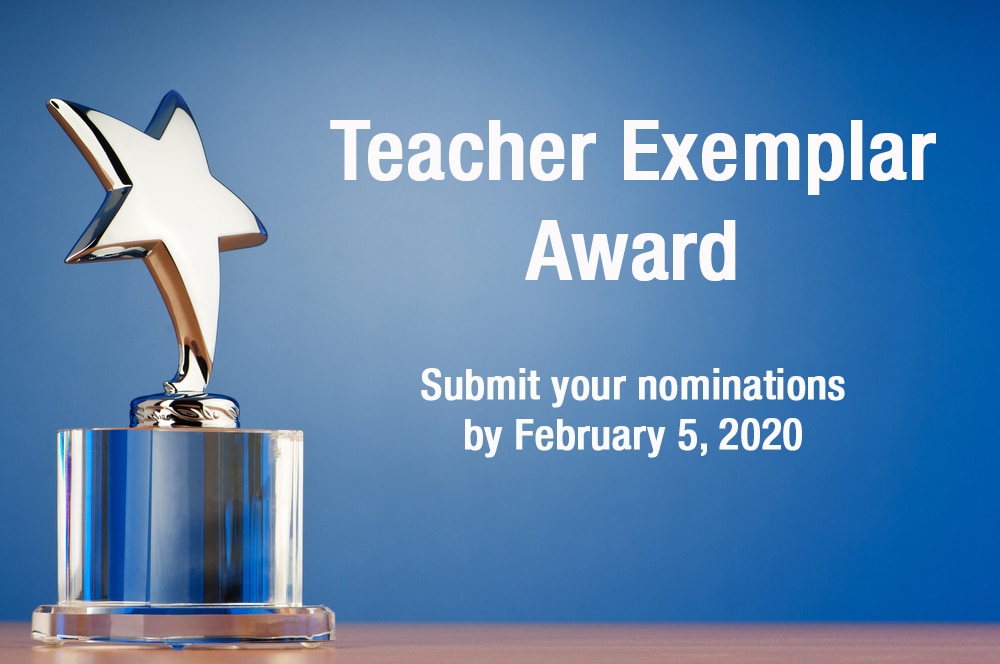
The Teacher Exemplar Award is presented by the AACTE Diversified Teacher Workforce (DTW) Topical Action Group (TAG) to recognize exceptional student/clinical teachers of Color and PK-12 mentor/cooperating teachers who serve as mentors to student/clinical teachers in field experiences. The instructional pedagogies and practices embodied by the recipients of this award reflects the DTW TAG mission and goals and advances our current understanding of the importance of cultivating a diversified teaching workforce that enhances educational opportunities for ethnically, culturally, and linguistically diverse students.
Recipients of these awards have demonstrated effective instructional/pedagogical practices, advocacy skills, and a service-minded disposition toward addressing inequities through their teaching, participation in local community, school, and/or grassroots service efforts. In recognition and honor of this important work, the recipients will receive a $500 honorarium each and be recognized in our 2021 DTW Virtual Institute. Also, the recipients will be asked to participate on the planning committee of the 2022 DTW Institute.
29 Jan2021
By Linda Minor
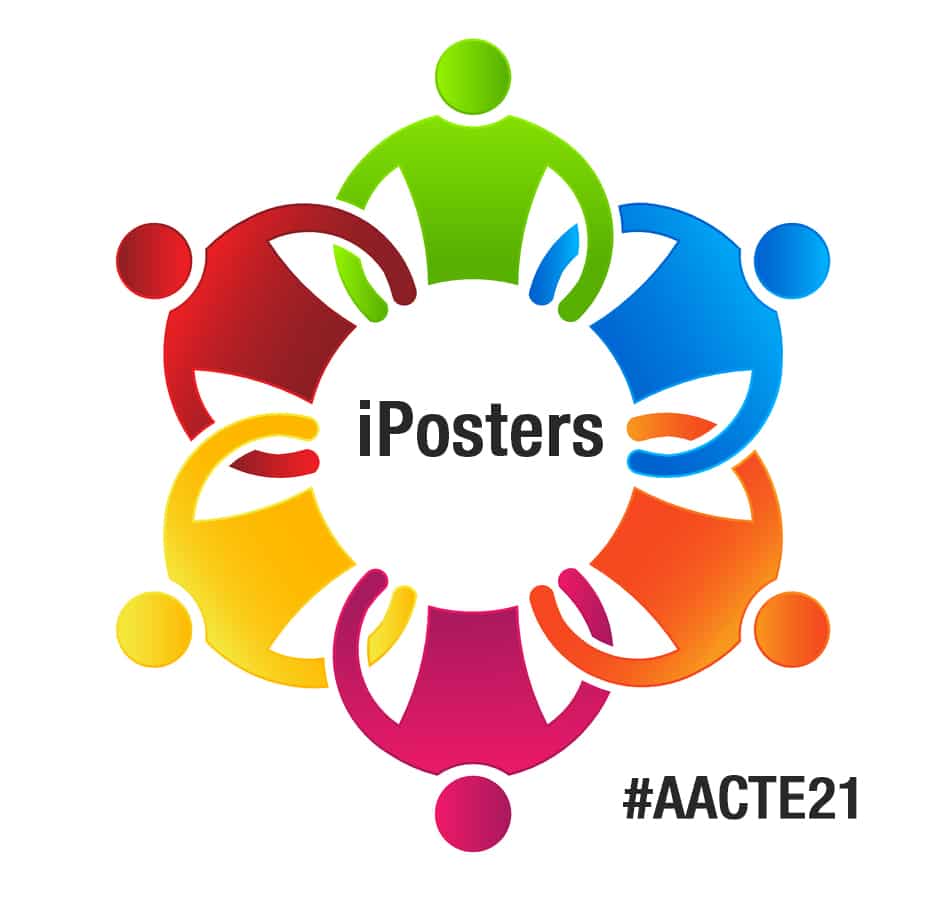 The Annual Meeting Roundtable Sessions and Holmes Poster Session will look a lot different at this year’s virtual conference. In past years, the Round Table sessions were set up with a presenter to speak to a small group of people on their subject matter and posters hung for the attendees to view and talk face-to-face with the author. With a virtual meeting, that is difficult to do.
The Annual Meeting Roundtable Sessions and Holmes Poster Session will look a lot different at this year’s virtual conference. In past years, the Round Table sessions were set up with a presenter to speak to a small group of people on their subject matter and posters hung for the attendees to view and talk face-to-face with the author. With a virtual meeting, that is difficult to do.
This year, we will be utilizing iPosters for the Round Table sessions and Holmes Poster Session. iPosters is an interactive presentation platform that displays high-resolution images, video, animations, and voice-over narrations. Participants will be able to scroll through the content of the poster, click on images, and watch and listen to videos and other enhancements the presenters add to their sessions. During their scheduled session time, presenters and authors will have the opportunity to talk with the attendees via chat or other options to discuss their session topic. Make sure to virtually stop by the Poster Gallery during these times to talk with the presenters:




 AACTE is pleased to announce the College of Education and Human Development at the Texas A&M University, as the next home to the Journal of Teacher Education (JTE) editorial team. The editors were selected through a rigorous peer-review process and approved for a 3-year term, beginning in 2021, which can be extended for an additional 3 years.
AACTE is pleased to announce the College of Education and Human Development at the Texas A&M University, as the next home to the Journal of Teacher Education (JTE) editorial team. The editors were selected through a rigorous peer-review process and approved for a 3-year term, beginning in 2021, which can be extended for an additional 3 years.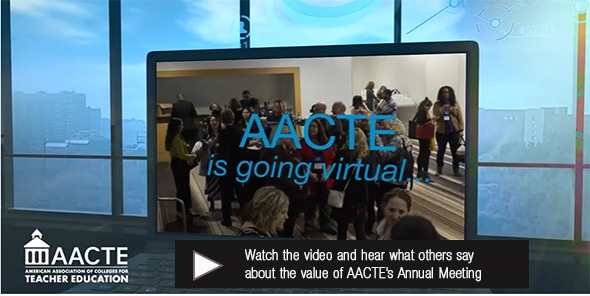





 Join your colleagues at the
Join your colleagues at the 
 Many years ago, during a class on educational administration in my [Megan Reister] master’s program, a guest speaker shared an inspirational mantra he lived by as principal of a large elementary school. He shared the quote, “Prior planning prevents poor performance!” and then went on to explain how he incorporated intentional planning, thoughtful conversations, and open communication with colleagues and staff at his school to create an atmosphere of intentionality and accountability within and outside the classrooms.
Many years ago, during a class on educational administration in my [Megan Reister] master’s program, a guest speaker shared an inspirational mantra he lived by as principal of a large elementary school. He shared the quote, “Prior planning prevents poor performance!” and then went on to explain how he incorporated intentional planning, thoughtful conversations, and open communication with colleagues and staff at his school to create an atmosphere of intentionality and accountability within and outside the classrooms.  This blog post is written by AACTE consultant Jane West and is intended to provide updated information. The views expressed in this post do not necessarily reflect the views of AACTE.
This blog post is written by AACTE consultant Jane West and is intended to provide updated information. The views expressed in this post do not necessarily reflect the views of AACTE.  AACTE is excited to announce U.S. Senator Elizabeth Warren will address the AACTE community during its
AACTE is excited to announce U.S. Senator Elizabeth Warren will address the AACTE community during its  As we enter the new year, many education leaders are questioning the impact of the pandemic on educator preparation programs (EPPs) and the pipeline of new teachers entering classrooms in 2021 and beyond.
As we enter the new year, many education leaders are questioning the impact of the pandemic on educator preparation programs (EPPs) and the pipeline of new teachers entering classrooms in 2021 and beyond.
 The Annual Meeting Roundtable Sessions and Holmes Poster Session will look a lot different at this year’s virtual conference. In past years, the Round Table sessions were set up with a presenter to speak to a small group of people on their subject matter and posters hung for the attendees to view and talk face-to-face with the author. With a virtual meeting, that is difficult to do.
The Annual Meeting Roundtable Sessions and Holmes Poster Session will look a lot different at this year’s virtual conference. In past years, the Round Table sessions were set up with a presenter to speak to a small group of people on their subject matter and posters hung for the attendees to view and talk face-to-face with the author. With a virtual meeting, that is difficult to do.